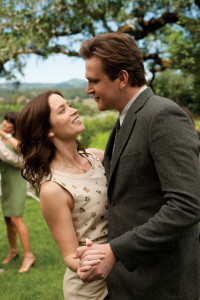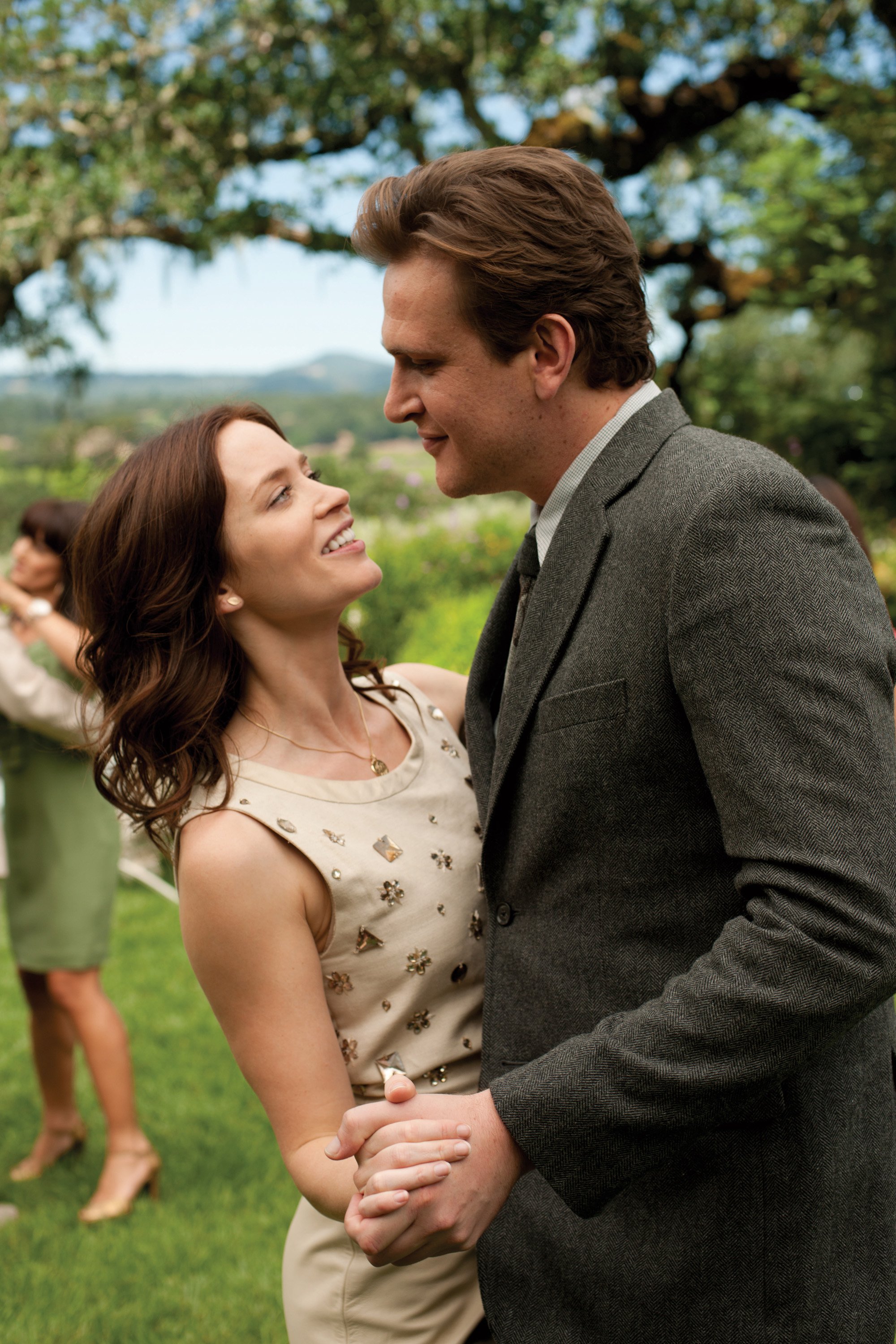
Feeling more grown-up than their first collaboration, Jason Segel and Nicholas Stoller’s newest film “The Five-Year Engagement,” about a near-perfect couple that can’t quite seem to tie the knot, still maintains that delicious mix of awkward realism, raunchy jokes and sentimentality sans cheesiness that made 2008’s “Forgetting Sarah Marshall” such a hit.
Unlike most romantic comedies that culminate in happily-ever-after marriages, “The Five-Year Engagement” begins with sous-chef Tom’s (Segel) proposal to girlfriend Violet (Emily Blunt) and charts the ups and downs that follow. The couple’s first hurdle comes in the form of Violet’s acceptance to a post-doc psychology program at the University of Michigan, which forces them to uproot from their comfy Bay Area for what initially promises to be only two years. But, as the title suggests, it isn’t quite that simple.
While Violet flourishes in her new academic environment, Tom struggles to find his niche in the gastronomically under-developed college town. The more he feels as though his career has stalled, having settled for making sandwiches at a local delicatessen, the more dissonant their lives seem to become. Faced with constant pressure to wed from friends and family alike, Violet and Tom can’t help but wonder themselves if their special day will ever come.
As much as the movie focuses on Tom and Violet, the all-star supporting cast should be reason enough to see it. Alison Brie (“Community”) steals scenes as Violet’s unintentionally upstaging younger sister, while Mindy Kaling (“The Office”), as a snarky post-doc, never fails to deliver on laughs every time her character tells it like it is. Tom’s newfound Midwest friends, including a pickle enthusiast played by Brian Posehn (“Just Shoot Me”) and an emasculated stay-at-home dad played by Chris Parnell (“Saturday Night Live”), are equally memorable.
Although the third act is somewhat overextended, it’s still enjoyable because, having seen the relationships flourish early on, you care about the characters and want to see them through – whether it means marital bliss or going their separate ways and being content in the knowledge that they gave it a go. And to their great credit, Blunt and Segel carry the film with aplomb, managing to be charismatic leads who still feel relatable.
As the screenwriters, Segel and Stoller go to town on gender roles, poking fun at who wears the pants in the relationship and why. More generally, though, they explore how one finds that balance of maintaining self-fulfillment while keeping the other person happy. Life is messy, as is demonstrated again and again, with a tendency to get in the way of what often seem like the best-laid plans. But, borrowing from Violet’s psychological experiments (which, meta alert, figure prominently in the story), in the end, even the worst of situations is what you choose to make of it.
